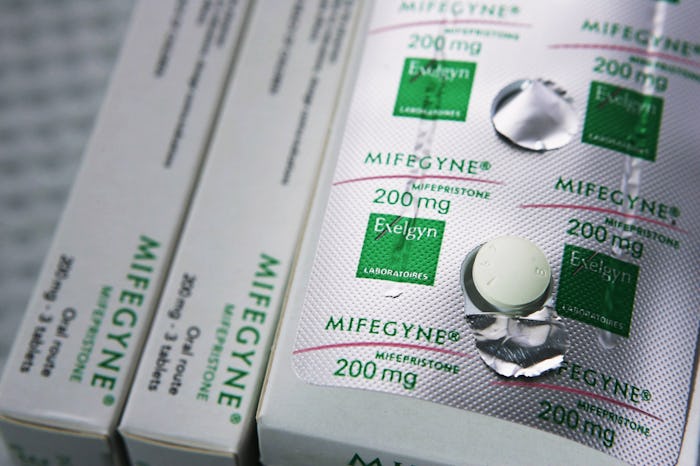Life

Is The Abortion Pill Available To Women In Zika Countries? Study Says Requests Are Rising
Frightened over the potentially devastating effects the virus has on newborn babies, more South and Central American women in Zika-affected countries are seeking abortion alternatives, according to a study released this week in the New England Journal of Medicine. In the first study of how the Zika virus has changed pregnant women’s reproductive habits in countries with limited access to abortion, researchers found that a rising number of women in Latin American countries had sought the abortion pill online, according to a Reuters report.
According to researchers, seven of the eight countries where Zika is spreading saw a sharp increase in online requests for mifepristone and misoprostol and consultations for the abortion medications. The study cited figures from Women on Web, a nonprofit that provides access to the drugs in countries where legal abortions are limited, saying that requests rose by nearly 40 percent in El Salvador, Costa Rica, and Colombia. Other countries saw an even more dramatic increase: 75.7 percent in Honduras, 93.3 percent in Venezuela, and 107.7 percent in Ecuador.
The Zika virus has been associated with an alarming number of babies born with microcephaly and other severe birth defects, leading to stillbirth or serious developmental delays in babies exposed while in the womb.
Since the Zika virus took hold in Latin America last year, the disease has had enormous implications for the debate over reproductive rights in countries where access to abortion and birth control has been limited. In Brazil, where women who obtain an abortion illegally can be jailed for up to three years, more than 4,000 women are believed to have given birth to babies with Zika-related microcephaly, according to Think Progress.
Still, the majority of the anti-abortion country appeared to be making access to safe abortion even more difficult after the outbreak. A new bill introduced this past February would increase the minimum sentence to four and a half years when women choose to abort a fetus with microcephaly. And, earlier this year, it was discovered that the Brazilian government was confiscating abortion pill orders sent to women by reproductive rights advocacy organizations — a move that many feared would lead to women seeking riskier black-market and back-alley alternatives.
While some anti-abortion advocates in the region have argued that children born with microcephaly can live productive lives, the reality is that kids born with Zika-related microcephaly face far more dismal prospects, according to experts. The Washington Post reported that usually only about 10 percent of children born with microcephaly — contracted as a result of malnutrition, drug or alcohol exposure, or lack of oxygen in utero — may face debilitating brain defects. But, when Zika is involved, health experts say children tend to fall on the more severe end of the spectrum, meaning physical and developmental impairments that could mean needing expensive health care for the rest of their lives.
While the World Health Organization recommended earlier this year that women in Zika-affected countries avoid pregnancy, the study authors told Reuters that the reality wasn’t that simple. Calls for abstinence aren’t exactly effective in countries where people have routine access to health care and family planning resources. Dr. Abigail Aiken, a reproductive health expert at the University of Texas at Austin said the recommendation had severe consequences for women living in countries with limited access to health services or pregnancy planning:
When you issue these kinds of advisories, but you uncouple them from pathways to safe and legal care, you create a really difficult situation for women. Many of these women felt underinformed and very scared.
That fear came across in no uncertain terms in the 20,000 desperate emails sent to Women on Web, according to Think Progress. One message sent from an unnamed woman underscored just how dire the situation is for many:
I contacted Zika four days ago. I just found out I’m about six weeks pregnant. I have a son I love dearly. I love children. But I don’t believe it is a wise decision to keep a baby who will suffer. I need an abortion. I don’t know who to turn to. Please help me ASAP.
Unfortunately for women living in these countries, when it comes to Zika, it seems that help might be hard to come by.